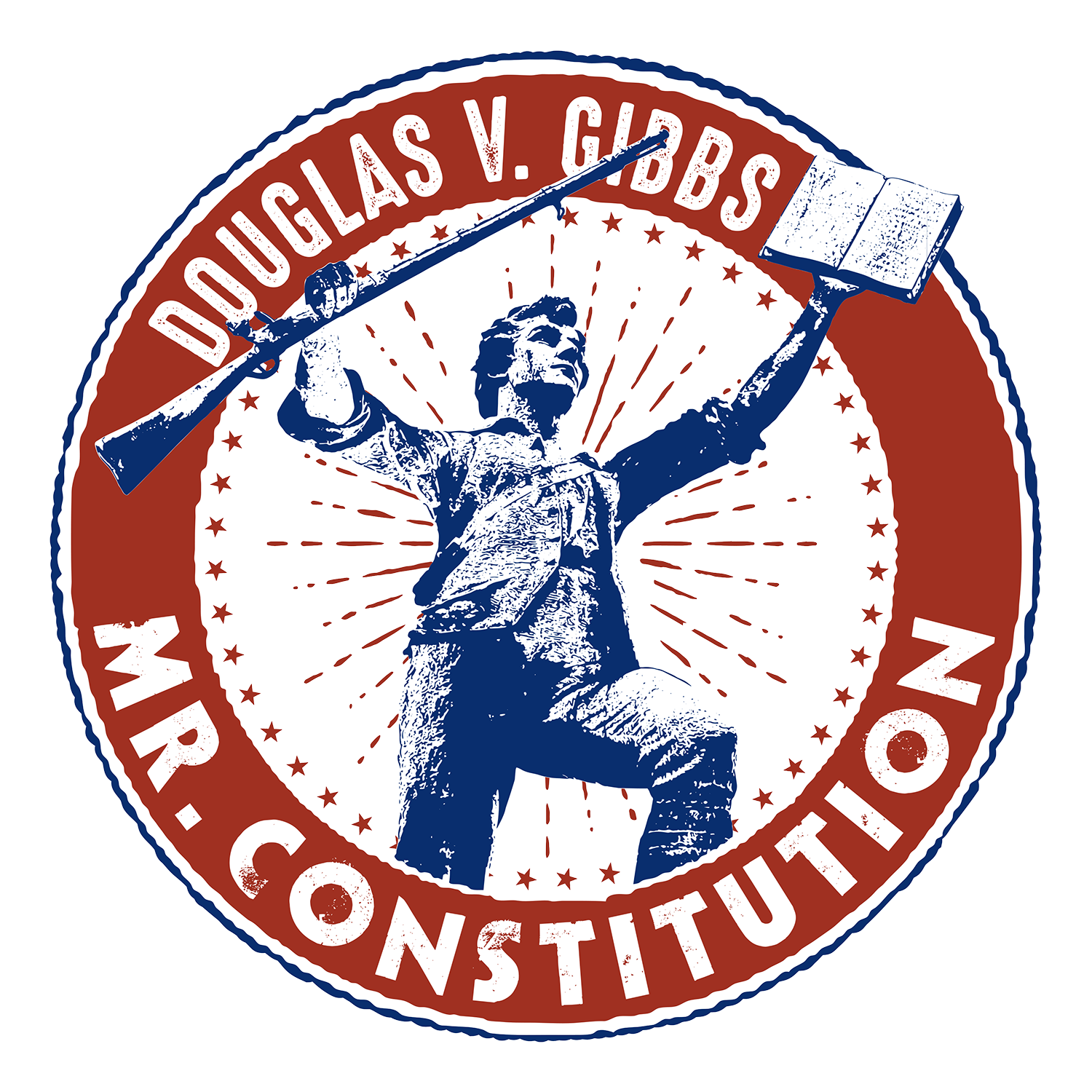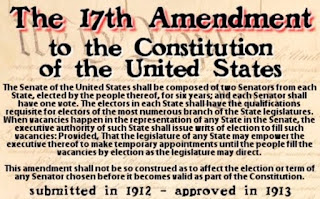Douglas V. Gibbs
Author, Speaker, Instructor, Radio Host
From an email:
Hi Doug,
Hope your vacation is going well.
I’m in a discussion on a message board and got an interesting question.
<<<Here’s the question then: you seem to imply that somehow states didn’t want the amendment to be ratified.
Why then did 31/48 (one less than the required 2/3 needed) apply for a Convention, thereby forcing Congress’ hand on the matter?
Why were states so seemingly eager to ratify it, seeing as it was either the 2nd or 3rd fastest ratified amendment? (i.e. why were they excited to strip themselves of power?)
The above 2 things wouldn’t be true if the states didn’t want the amendment. If it was a naked power grab, then all the states would’ve simply blocked the measure and it never would’ve passed. Instead they were excited to ratify the 17th.>>>
Could you put together a 1 or 2 paragraph answer to the state of national politics at the time? I’ve explained that the Progressive movement was just kicking into gear, and I’ve explained Jeckyl Island, but I’m not coming up with the right answer to the above.
Thanks in advance.
B.F.
Here’s the Answer
Sir,
Information, or at least accurate information, about what happened is hard to come by because the progressive left buried so much of it. That said, as Curtis B. Dall wrote on page 137 of his book, F.D.R. – My Exploited Father-in-Law, published in 1968 (of which I have a copy):
“Occasionally, on a Saturday morning in the summer of 1912, Bernard Baruch would walk into the Democratic Headquarters with Woodrow Wilson in tow, ‘leading him like one would a poodle on a string.’ Wilson would be quite solemn-faced in appearance, dressed in dark, formal clothes, having just arrived in New York from Trenton. According to my friend, Wilson would be given his special ‘indoctrination course’ in politics, by several of the top Advisers assembled there. The course consisted chiefly of outlining to him and his agreeing in principle to:
1. Aiding and pushing through Congress the projected Federal Reserve Bank Legislation through Congress when Paul Warburg approved the final draft of the proposed Act, then being worked on.
2. Aiding in changing the method of electing U.S. Senators, by establishing a direct vote of the people, which provided more control over the Senate by the professional politicians.
3. Agreeing to aid and introduce the graduated, personal income tax, which was brought here from England to drain off the results of our individual initiative.
4. If called upon, to lend a sympathetic ear and aid indicated ‘policy’ if war should break out in Europe.
5. To lend a thoughtful ear to recommendations made by ‘policy,’ in respect to filling key Cabinet posts.
Wilson dutifully received and absorbed his indoctrination, shook hands all around, and then departed. Whereupon the leaders and Advisers went into ‘the back room’ of headquarters, shut the door, and ‘had a big belly laugh!’ Someone would then ask, “How is our other candidate doing?”
The other candidate was Theodore Roosevelt, the Bull-Moose leader. Hence, the strong support of that ‘steering committee’ in the 1912 election went out to both Woodrow Wilson and Theodore Roosevelt who had lined up against President Taft. It appeared that President Taft had not been very receptive and disapproved of he political desires expressed by certain pro-Zionist political leaders here in respect to U.S. relations with Russia.
Thus, the Republican vote was neatly split by the insurgent “Bull Moosers,” and the Democratic Candidate, Woodrow Wilson, won!”
That passage alone should help elucidate for you what was going on. Understand, both parties originally embraced the Fabien progressive ideology when it first arrived in America from Britain during the 1880s, leading to the emergence of the Progressive Era in the 1890s. But, with the failure of the policies becoming apparent, many Republicans, like Taft, stood against such political aims. When it came to the ratification of the 16th Amendment and the 17th Amendment, all of the Democrats, and a good portion of the GOP was in favor for nefarious reasons of political substance. The lie they came up with was that the corporations were poisoning the decisions of the State legislatures regarding taxation questions, and the appointment of Senators, so both amendments were needed to guard the people from powerful corporate interests, and to stop the resulting corruption that was present as a result. The public bought the argument, and ratification of the two proposals became very popular. State legislators in on the truth voted yes with a sneer of leftist accomplishment, State legislators who did not necessarily agree voted yes for fear of insulting the public who was demanding an end to corruption in politics (as was being advertised by those behind the 16th and 17th Amendments) and a firmer voice by “We the People,” and they feared going against those amendments also for fear of angering their progressive colleagues who had been threatening anyone who went against these proposals would lose committee seats, and reelection.


